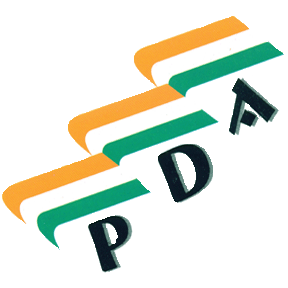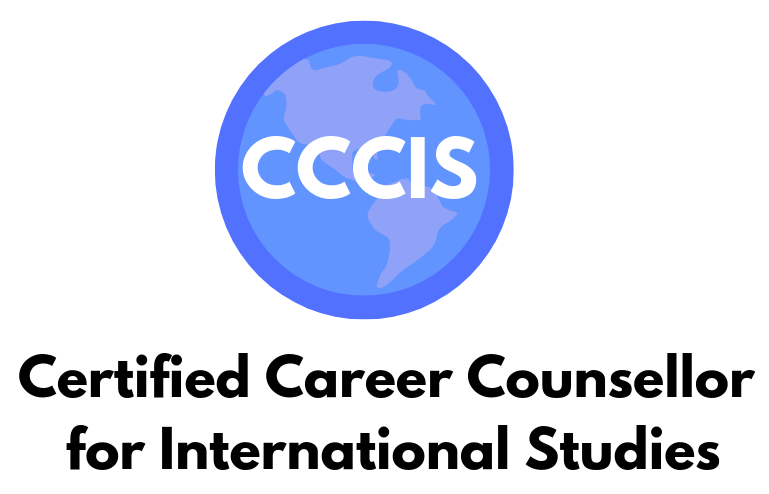Asked by Ankit Agrawal | 8th of April 2020
career counsellor career assessment
There are many psychometric theories used in career assessment.
But one of the theory that interest me the most is called Holland personality type theory.
According to this theory there are six type of personalities that like to work in six type of different environments.
I love to take personality test but that is not enough. I also like to take skill test. These tests are available with edumilestones company. So I prefer to take that tests.
There are other test also that I love to connect. I offer self Discovery program to choose the best career for you. That course also offer you other benefits like how to choose business partner and how to choose life partner with how to choose right career.
You may call me at 9426 214 800.
I offer online video conference coaching ine training and conduct psychometric tests online
Neerav
I have already answered this question but I wish to share something more on this.
I have spent nearly 20 years into career counselling. I have gone through many psychometric tests.
But I was very much impressed by the RAISEC personality type test.
But I found a very dangerous kind of things while I conducted tests on hundreds of students. Most of the students do not understand the words correctly. So, they interpret according to their own understanding.
As for example, the meaning of love may be different for male and female. In fact meaning of love maybe having many meanings , many responses.
If you want to know the values of 10 standard student who is interested to find out the best career it will be very difficult because they really do not know what that values are.
It is better to play with them the psychometric games, that is also known as the experiential games, that help them to know themselves better n it is very easy for career counselor to you know them better and predict about their future career.
As for example there is a very nice game call ringtones game that help them to know their risk taking abilities. Then you can easily say about their motivations..
Is he a career motivated are relationship motivated for power motivated...
So I want to create online games so we can identify them early and we can understand more about their values and motivations.
I am waiting for the psychologist in the technologist so I can work with them to create a very effective psychometric tests that accurately define everyone so he can choose the most accurate career top most career for them in sign out in the world

Psychometrics is the field of study concerned with the theory and technique of psychological measurement ,which includes the measurement of knowledge, abilities, attitudes and personality traits. The field is primarily concerned with the study of differences between individuals. FECHNER, the early German Psychophysiologist is known as the father of Psychometrics.
For career assessment carl jung “personality theory (jung meant that people were defined by their characteristics within the following four groups: Extroversion_Introversion, Sensing_ Intuition, Thinking _Feeling, Judging_ Perceiving.
Holland”s theory of career choice (RIASEC) Holland found that people needing help with career decisions can be supported by underesting their resememblence the six vocational personality types : Realistic[R] Investigative[I] Artistic[A] Social[S] Enterprising[E] Conventional [C]
Varks theory of career choice - The acronym VARK stands for VISUAL, Aural, Read / Write and Kinesthetic sensory modalities are used for learning information.
Howard Gardener's theory of multiple intelligencies. These multiple intelligencies range from the use of words, numbers, pictures, music, to the importance of social interactions, introspection, physical movement and being in tune and nature.
Daniel Goleman an American psychologist, who helped to popularize emotional intelligence. It has five elements : Self_awareness, Self_regulation, Motivation, Empathy, Socialskills

One of the best ways to determine your career direction is to complete a career assessment. Yet there are literally hundreds of career tests out there. Is a career test the same as an aptitude test? What about a career personality test? This post clarifies the differences and presents 7 criteria for deciding which career test is best for you.
“I used to feel depressed at work, hate my boss, and was sometimes so bored that I actually fell asleep at my desk!” --- career test taker
If this sounds like you, then it’s probably time to consider changing jobs or careers. But before you can make your career change, you need to figure out what you want to do.
One of the best ways to get clear is to complete a career assessment. Yet there are literally hundreds of career tests out there. Is a career test the same as an aptitude test? What about a career personality test? This article clarifies the differences and presents 7 criteria for deciding which career test is best for you.
#1 Career test vs. personality test : Is the assessment specifically designed to provide career guidance?
Personality tests only tell you about your character traits whereas a career assessment gives specific career advice. Of course, it helps to know whether you’re an extrovert or an introvert and perceive by sensing or intuition. Personality tests such as the Myers Briggs Type Indicator (MBTI) and the Enneagram are quite useful as background information. Making the leap from simple awareness of your personality type to specific career strategies is very difficult, however. If you want a new job or career, it’s better to take an assessment that is specifically geared to providing career guidance.
#2 Specific vs. general : Does the career assessment give concrete recommendations that you can use immediately rather than vague observations that are open to interpretation and not actionable? Aside from the change itself, the hardest part of changing careers is narrowing down your choices. But if you don’t get specific, you won’t be able to take action. A good assessment should not be general like the astrological horoscopes in the newspaper.
#3 Motivation rules: Why motivation is a better indicator than aptitude or personality Does the career assessment measure motivation?
Motivation is a far better career indicator than skill or personality because what you like to do is what you WILL do and what you will get very good at (if you aren't already). Why force a square peg into a round hole?
When you base your decisions on what motivates you, you'll probably feel much more fulfilled, and be much more successful, too.
#4 Where’s the beef? : Even if you’re a vegetarian, you’ll want “meaty” results! A good career assessment should include hard data, as well as sufficient detail and explanation to help you interpret the results.
#5 Do you believe it? Is the career assessment scientifically valid? An effective career assessment should have a high predictive reliability. Such things can be measured statistically. Anything over 95% is quite good.
Statistical validity is important for a number of reasons. Obviously, you want to feel that the assessment provides an accurate picture of what motivates you and you don’t want to be misled by grossly inaccurate results. But another point is that when the results are believable this provides a boost to your self-confidence. In my case, I was relieved and encouraged to see from my results that I had chosen the correct career path. It was a kind of confirmation or validation: “Whew! What a relief!”
Remember that ultimately it’s up to you to decide whether a set of results makes sense or not. However, it helps to use a highly reliable assessment.
#6 Can you get from A to Z? Are additional tools available to help you take your results and develop a clear career roadmap for yourself?
Honestly, a lot of people take career tests and get brilliant insights. Unfortunately, many of these same people are never able to turn their insights into results. What’s needed is a support infrastructure of materials and people to help you apply your results over time.
#7 Is it fast? Even in the internet age, there still are a lot of tests that you can only take on paper. It takes 30 minutes or even over an hour to take the test. Then you have to wait while the test is scored and processed. You may only get your results after several days or weeks.
Personally I prefer career tests that I can take online and that give me my results immediately.
Conclusion : A career test is just a tool and just one step on your career change journey. Nonetheless, it’s worth spending some time to understand what types of tests are available and which is best for you. Just remember that even the best career test is only a tool. It’s up to you to take charge of your own career. If you need more insigts We can arrange a Call Back for More Details.

Most of test theory (psychometrics) derives from one of three conceptual and associated statistical models: (a) classical test theory, derived from factor analysis; (b) generalizability theory, derived from the analysis of variance; (c) item response models, derived from latent trait theory.
Psychometric Career Assessment depends upon the Career Psychometric and Skills & Abilities Assessment based on MBTI and Holland Personality type.
Career Psychometrics are :-
1) Career Personality
2) Career Interest
3) Career Values
Skills & Abilities Assessments are :-
1) Verbal
2) Numerical
3) Logical
4) Social
5) Clerical
6) Visualization
7) Mechanical
8) Leadership
9) Memorization